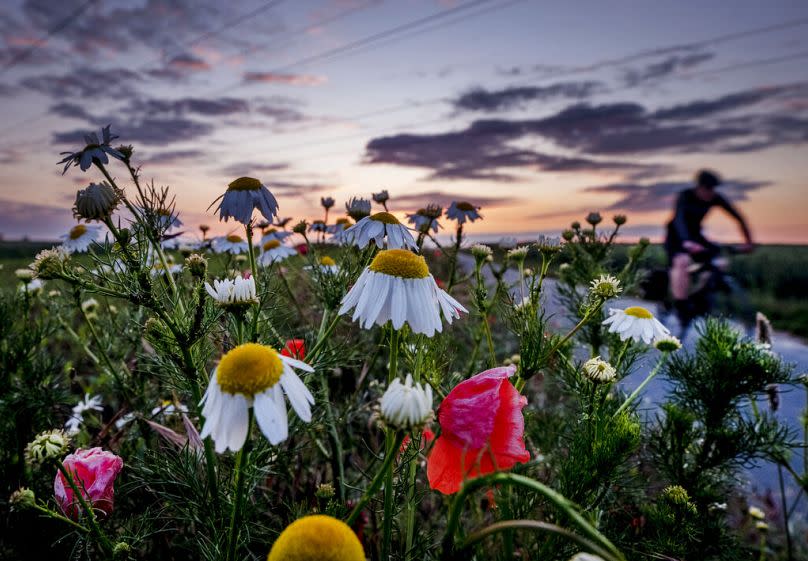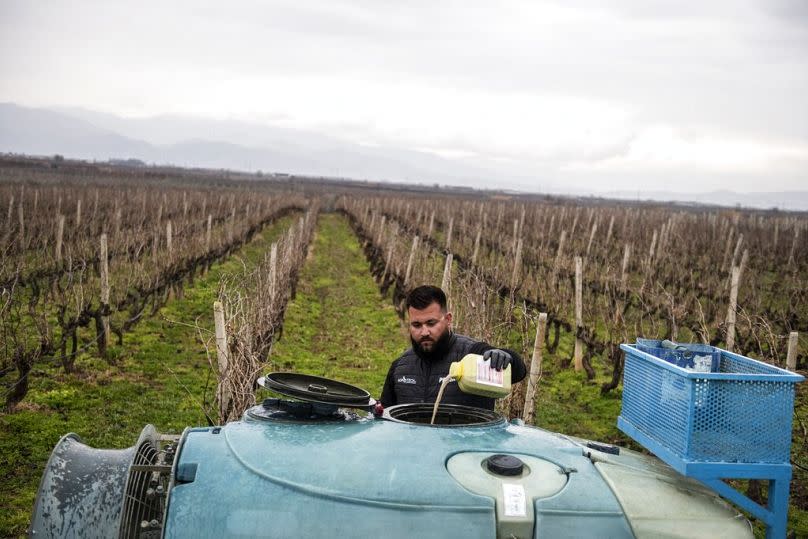Europe has to set aside the pesticides row and turn toward sustainable agricultural solutions

As we try to strike a balance between the challenges of tackling climate change, promoting healthy diets and enabling farmer livelihoods, one thing is clear: sustainable agriculture is the only way forward.
These three major challenges encompass the three dimensions of sustainability — social, environmental, and economic.
The key question is, are we doing enough? Despite significant recent advances, there is clearly a lot more that remains to be done.
It is evident that we need the European Union's support to boost food security, address important challenges within the agricultural sector, and contribute to the United Nations' Sustainable Development Goals. I know I am not alone in saying this, but it is still worth repeating.
Now is not the time to offer hollow assurances of “pesticide-free agriculture”, spread inaccuracies about novel technologies on the horizon, or reduce complex issues to oversimplification.
The stakes are simply too high, the issues too intricate and the world too vulnerable. This isn't about promoting catchy slogans; it's about taking concrete steps towards a future sustainable agricultural system.
As an advocate for sustainable agriculture, I have witnessed firsthand our sector’s embrace of innovative and more environmentally-friendly solutions.
Our vision for farming is clear: it requires technology, collaboration and outcome-based policies that embrace innovation and empower farmers.
This transition is both daunting and complicated, a true paradigm shift in the way we approach food production. But it is a necessary transition if we are to provide for a growing global population while preserving our planet's resources.
Turning challenges into opportunities
I firmly believe that EU policymakers are instrumental in transitioning to sustainable agriculture.
We need a policy framework that incentivises agreed outcomes and provides enough flexibility for farmers to implement the best solutions for their specific land conditions and needs.

First, this requires approving a new generation of pesticides. Yes, we still believe that pesticides remain one of the most effective solutions for farmers to protect their crops from pests and diseases.
Governments caught off guard by von der Leyen’s U-turn on pesticide cuts
Glyphosate: Europe divided by the world's most widely used pesticide
But, as an example, we urgently need new regulatory pathways to approve biopesticides. Biopesticides offer farmers promising alternatives to some conventional pesticides.
That’s why our members have committed to invest €4 billion by 2030 to develop and bring new and more effective biopesticides to the market. To date, our sector has invested €1.75bn into developing innovative new biopesticides.
Europe is lagging behind — but this can change
However, where biopesticides are concerned, the EU is lagging well behind other competing agricultural markets. It takes 7 years on average to bring a biopesticide to market in the EU, compared to 2-3 years elsewhere.
Moreover, the return on investment in Europe is 30% below the global average for biopesticides. This leaves Europe at a significant competitive disadvantage — and it explains why these solutions are not easily available in the EU.

We also need more digital and precision agriculture tools to reduce the environmental footprint of farming practices and for farmers to be able to use resources more efficiently.
The potential for this new technology is huge, but it needs political will and financial support to turn it into a reality. For example, farmers in other regions of the world have access to using drones for spot applications of pesticides, while in the EU drones still fall under the category of aircraft and therefore applications are illegal.
Ants could replace harmful pesticides and save the bees, scientists say
Meet the EU farmers using fewer pesticides to make agriculture greener
Additionally, we are hoping for a pragmatic and evidence-based legislative framework for plants developed by New Genomic Techniques.
Other regions are already benefiting from this plant technology: in the US, we have high oleic soybean which is 80% higher in oleic acid, and 20% less in saturated fatty acids.
Meanwhile, Japan has developed and approved a biotech tomato high in GABA, an amino acid known for its benefits to human health.
Let’s allow farmers to succeed
From ensuring food security and the affordability of raw materials to strengthening resilience against climate change, sustainability presents both challenges and opportunities for EU agriculture.
We need to turn the challenges into opportunities. We believe our sector is part of the solution and have the innovations to address some of the challenges ahead.
We're therefore asking EU policymakers to give farmers access to a comprehensive set of farming tools — the "full toolbox". Farmers need real, practical solutions. By offering the right kind of support, we can help them farm smarter and in doing so, improve their sustainability.
Sometimes, it's about knowledge sharing; other times, it's about private partnership solutions or a robust regulatory framework.
What is clear is that, without cooperation and a shared vision, we will not find any long-term solutions. We need to work together to overcome the challenges and seize the opportunities presented by sustainable agriculture. Our sector is fully committed to this objective and ready to collaborate with all stakeholders towards this common goal.
This is an open invitation, one that I hope will be accepted. As I said, the stakes are too high, the issues too intricate, and the world too dependent on us taking the right actions for us to work in silos, or isolation — or worse, for us to stand divided.
By collaborating, we can make a significant impact on our environment, our farmers' livelihoods, and ultimately, the future of our planet.
Olivier de Matos is the Director General of CropLife Europe. He is also the former Secretary General of the European Centre for Ecotoxicology and Toxicology of Chemicals (ECETOC).
Contact us at view@euronews.com to send pitches or submissions and be part of the conversation.

 Yahoo News
Yahoo News 
